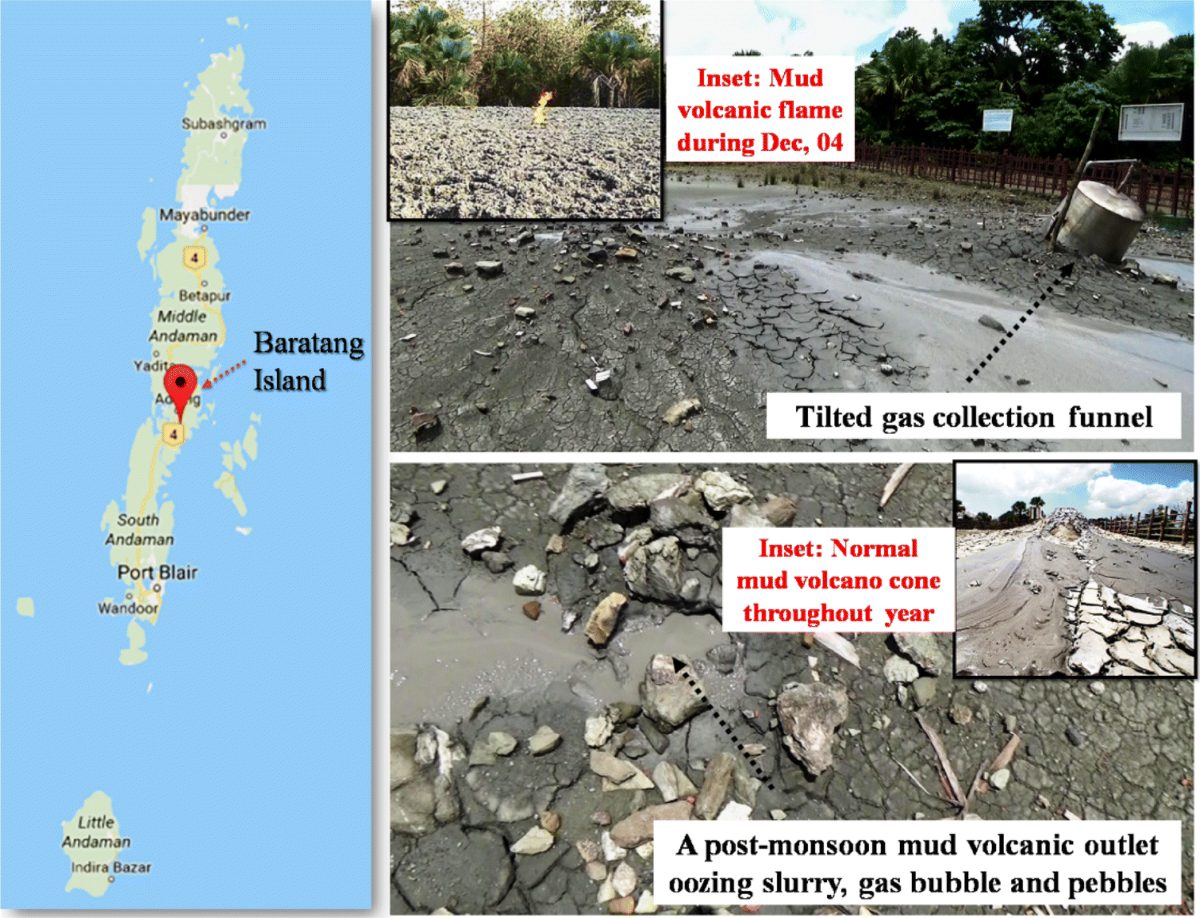Why in the News?
India’s only mud volcano at Baratang Island in the Andaman and Nicobar Islands erupted after remaining dormant for over two decades.

Note: The Barren Island has erupted recently.
|
About the Baratang Mud Volcano:
- Location: Baratang Island, around 100–150 km north of Port Blair, situated in the North and Middle Andaman district.
- Uniqueness: It is India’s only collection of mud volcanoes — 11 in total across the archipelago, 8 of which are on Baratang and Middle Andaman.
- Eruptions: Significant eruptions were last reported in 2005; the 2025 eruption marks the first major event in 20 years.
- Composition & Nature:
- Emits cool mud, water, and gases (methane, hydrogen sulfide) rather than lava or fire.
- Creates mud cones, bubbling pools, or dried crater-like formations.
- Eruptions are low in intensity, involving slow oozing and gas bubbling rather than violent explosions.
- Accessibility: A short 160-metre walk from the nearest road; the site lies near the Jarawa Tribal Reserve, where photography is prohibited for ethical and legal reasons.
Geological Formation and Features:
- Tectonic Setting: Formed due to subduction of the Indian Plate beneath the Burmese Plate, leading to gas and fluid release from deep layers.
- Mechanism:
- Decomposition of organic matter underground produces gas pressure that pushes mud upwards.
- These gases, along with water and sediments, escape to the surface, creating muddy eruptions and bubbling vents.
- Temperature & Composition:
- The expelled material is cool, unlike magmatic volcanoes.
- Contains saline water, organic sediments, and gases, giving it a distinctive odour and appearance.
- Earth Processes: The phenomenon helps scientists study fluid migration, methane emissions, and crustal deformation in active subduction zones.
| [UPSC 2018] Consider the following statements:
1.The Barren Island volcano is an active volcano located in the Indian territory. 2.Barren Island lies about 140 km east of Great Nicobar. 3.The last time the Barren Island volcano erupted was in 1991 and it has remained inactive since then. Which of the statements given above is/are correct? Options: (a) 1 only * (b) 2 and 3 (c) 3 only (d) 1 and 3 |
Get an IAS/IPS ranker as your 1: 1 personal mentor for UPSC 2024

